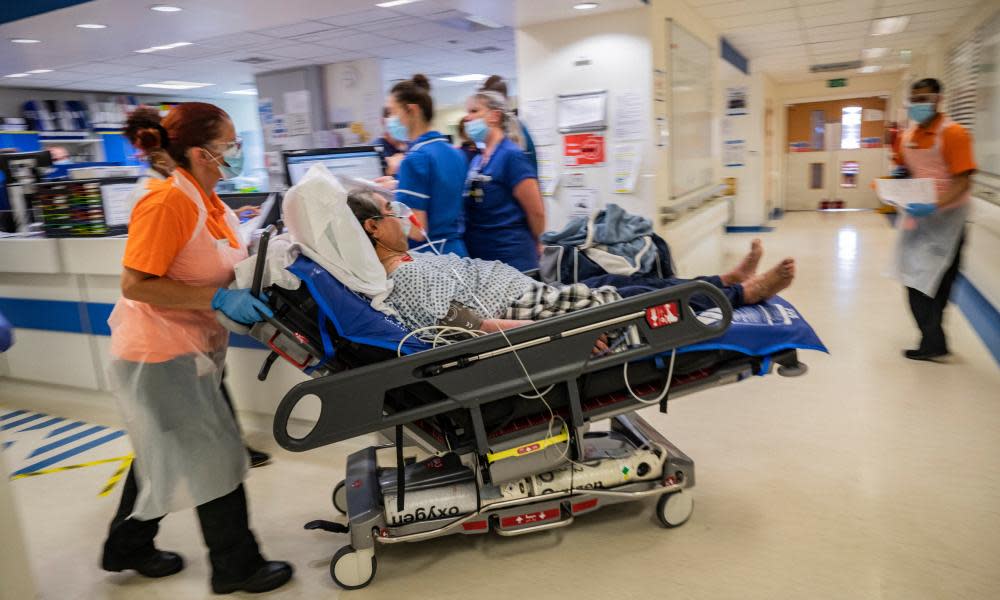If India variant starts a third wave, England’s Covid rules may have to stay

Heralded as “freedom day”, 21 June has been a date circled in the diary by businesses, families and communities alike – a moment when coronavirus restrictions in England are expected to finally end, hopefully in a blaze of summer sunshine.
But new data has revealed that the variant of concern first detected in India, known as B.1.617.2, has continued to spread across England, with samples containing the variant now found from Cornwall to Canterbury, Bury to Bromley.
Believed to be both more transmissible than the variant first detected in Kent, and with Covid vaccines showing some reduced effectiveness against it, particularly after one dose, B.1.617.2 has worried scientists, some of whom have warned that a third wave of Covid may already be under way. At present, up to three-quarters of new Covid cases in the UK are thought to be caused by this variant.
While the vaccination programme means the link between cases and hospitalisations and deaths has been weakened, experts have warned that the relationship has not been completely broken. That is because at present more than half of UK adults are not yet fully vaccinated, while even after both doses not everyone will have enough protection against severe disease.
Without B.1.617.2, experts predicted there would still be a third wave over the summer as restrictions are eased and individuals increased their contacts – albeit with far lower numbers of hospitalisations and deaths compared with previous waves, thanks to the vaccines.
The growth of B.1.617.2 has raised concerns once more. According to the Scientific Advisory Group for Emergencies (Sage), it is “a realistic possibility” that the variant could be up to 50% more transmissible than the Kent variant that previously predominated. Should that be the case, modelling from the University of Warwick suggested there could be a third wave of Covid with a peak of 10,000 hospitalisations per day, assuming no changes are made to the roadmap. There have already been some signs of a slight rise in hospitalisations in some parts of the country.
There are also concerns that a rise in infections could lead to many more cases of long Covid, and put pressure on NHS services, potentially worsening the surgery backlog, among other knock-on effects.
Another key consideration is what effect the easing of restrictions on 17 May has had. That is only now beginning to emerge in case data, and it may be another week or two before the impact on hospitalisations can be seen.
However. business and hospitality venues that have remained closed to date are concerned about any further shifting over the easing of lockdown, with industry bodies warning of further devastation for the sector if they are unable to reopen fully.
Greg Parmley, chief executive of live music trade association Live, said the government’s series of trial events had shown that “music events can be held safely, with almost no Covid impact, so there is no reason to keep us closed any longer”.
The effectiveness of Covid vaccines against the variant is under scrutiny, and the exact degree to which it may be more transmissible than that which emerged in Kent.
Despite the uncertainties, many experts have backed a delay in the easing of restrictions in England on 21 June – allowing time for vaccine rollout and immunity levels in the population to rise.
Any delay to the easing of restrictions is likely to cause widespread disappointment and, of course, difficulties for businesses that have banked on the change. But, with the big day just three weeks away, ministers will need to decide whether taking one step forward will land England two steps back.

 Yahoo News
Yahoo News 
